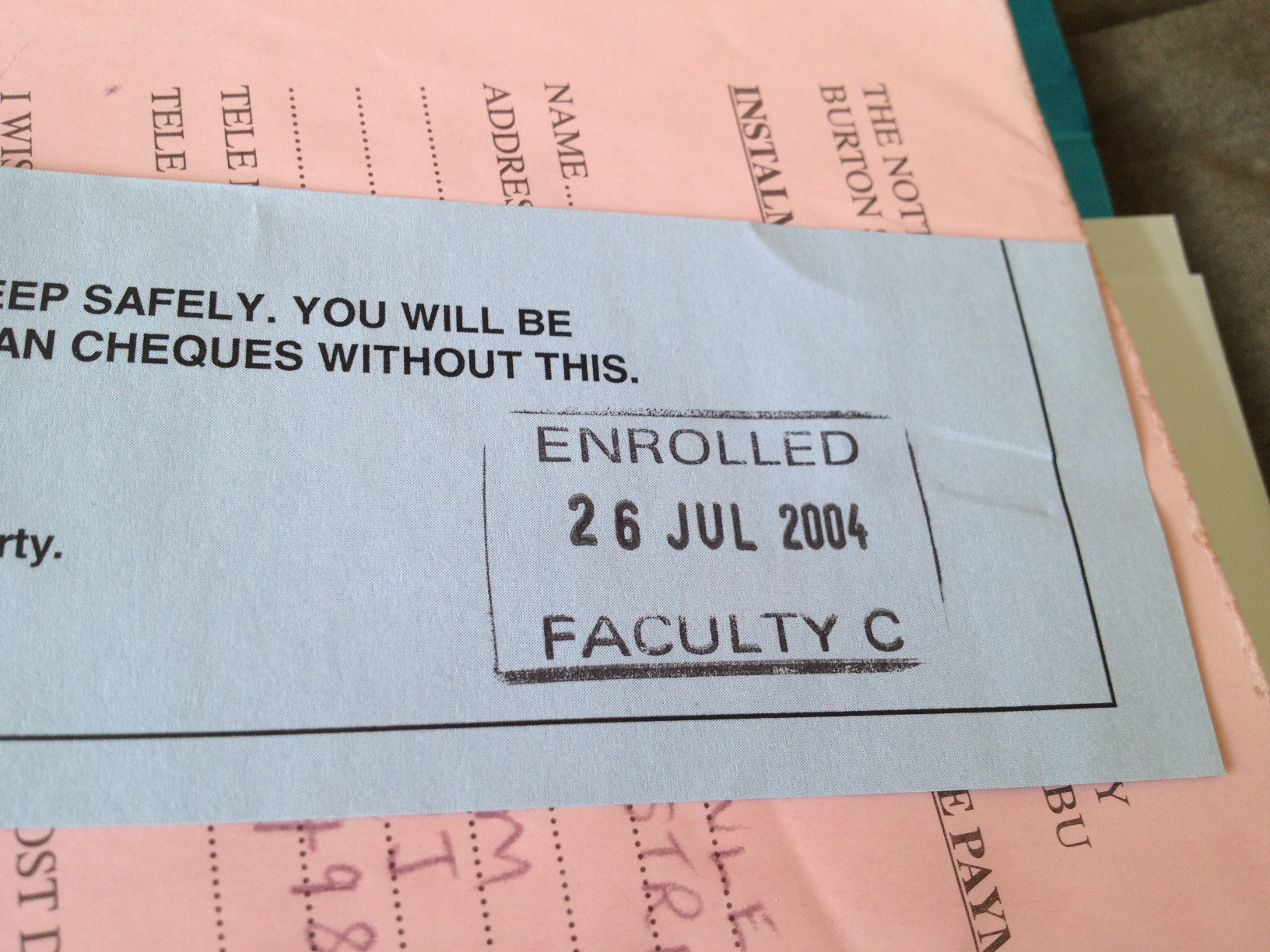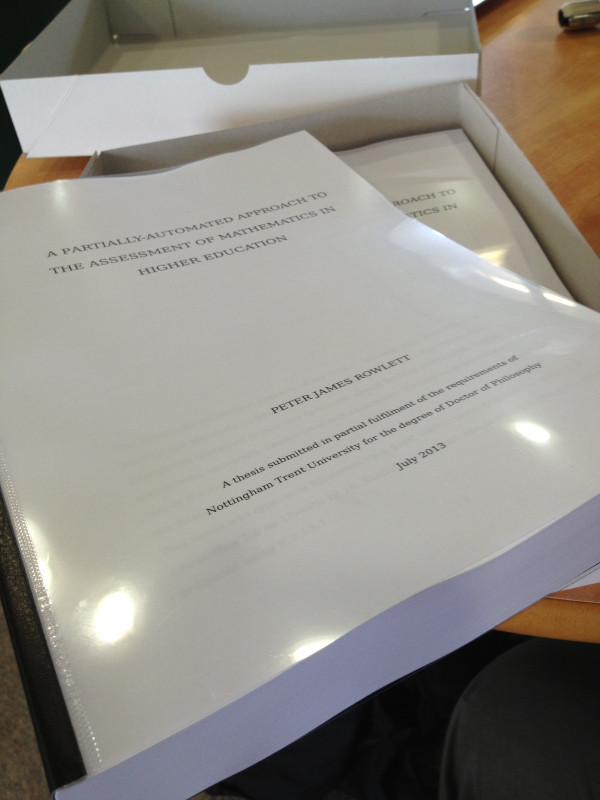Yesterday, with my tongue certainly in cheek, I tweeted to the BBC Breaking News Twitter account that I had handed in my thesis, with a promise of a press release to follow. Taking the lead from my over-inflated sense of self importance, Christian Perfect posted this news to The Aperiodical News feed as ‘Breaking: Peter Rowlett has submitted his doctoral thesis‘.
Recently, in order to complete the submission paperwork, I went through my PhD files and stumbled upon my original enrolment confirmation. Before the brave new world of online enrolment and online fee payment, I had to go to an office and give money to receive a stamp on a piece of paper. The enrolment slip asks me to keep it safe, which apparently I did.
As a part time PhD student, I was given eight years instead of the usual four. Along the way, I took one year off to work full time, making my total duration nine years. In fact, I took nine years minus two days. The result of this is the thesis I submitted yesterday.
The title is ‘A Partially-automated Approach to the Assessment of Mathematics in Higher Education’. The abstract, as submitted, is as follows.
E-assessment in higher education mathematics is explored via a systematic review of literature and a practitioner survey, and compared with other assessment approaches in common use in higher education mathematics in the UK. E-assessment offers certain advantages over other approaches, for example question randomisation allows individualisation of assessment, but it is restricted in the range of what can be assessed due to the limitations of automated marking.
A partially-automated approach is proposed in which e-assessment techniques are used to set an individualised assessment which is taken and marked by hand. This approach is implemented in a higher education mathematics module. The module uses individual coursework assignments alongside group work to attempt to account for individual contribution to learning outcomes. The partially-automated approach is used as a method for reducing the risk of plagiarism in this coursework, rather than replacing it with a written examination or e-assessment.
Evaluation via blind second-marking indicates that the approach was capable of setting a reliable and valid assessment. Evaluation of student views and analysis of assessment marks leads to the conclusion that plagiarism does take place among the undergraduate cohort, was a risk during this assessment, but was not in fact a particular problem.
The partially-automated approach is recommended as an appropriate addition to the repertoire of higher education mathematics assessment methods, particularly in cases where an assessment carries a high risk of plagiarism but the need for open-ended or deeper questions make an examination or automated marking system sub-optimal.
I have received a lot of messages of congratulation (and some beer of congratulation), for which thanks, but now I wait for the viva. It is then that we will discover whether what I have handed in is of any worth. No date has been arranged yet, but I expect this will be in the autumn and it is most likely to lead to corrections to be completed in 2014. The long stretch is not yet over, but it is nice to not have ‘write thesis’ on my list to worry about today.


3 Responses to “26th July 2004–23rd July 2013”